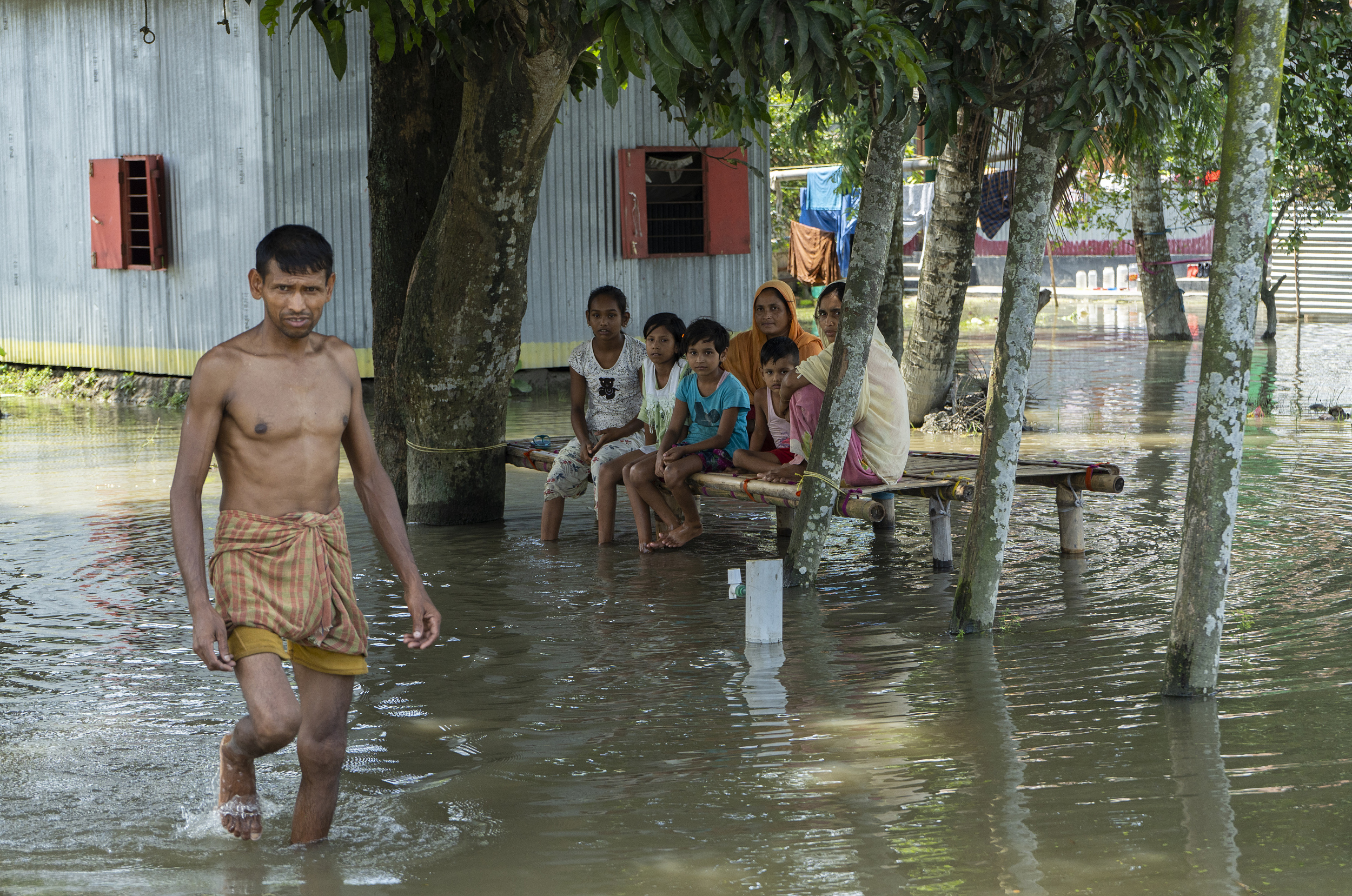
A family sits near their submerged house at a flood affected village in Barpeta, India on June 24. (PHOTO: VCG)
By?LIANG?Yilian
The world is currently witnessing a surge in extreme weather events, such as droughts, wildfires and heat waves, which has intensified concerns about climate change.? Amidst global efforts to combat this crisis, a fundamental question arises: Who should bear the financial burden?
A recent study led by the University of Leeds, published in the journal Nature Sustainability, has provided a resolute answer, revealing the climate hypocrisy of developed countries.? The study exposes that nearly 90 percent of excess carbon emissions originated from these nations, potentially making them liable for a staggering 170 trillion USD in climate reparations to low-emitting countries.
Since the Industrial Revolution, developed countries, including the U.S. and those in Europe, have been the primary contributors to heat-trapping emissions that saturate our atmosphere.? In contrast, developing countries like India and China, despite having lower per capita emissions, bear the brunt of a rapidly warming climate.
"It is unjust and it is immoral," said Barbados Prime Minister Mia Mottley at the COP 26 summit, adding that "It is wrong."? Mottley wants richer countries to stop throwing garbage in her yard and then telling her to clean it up. Given the geography of Barbados, the nation is vulnerable to Atlantic hurricanes and tropical storms, which are projected to increase in intensity due to climate change.? Mottley is leading a push for richer countries to compensate poorer ones for the "loss and damage" caused by climate change.
"Loss and damage is still a taboo for developed countries," Alpha Oumar Kaloga, one of the lead negotiators of the Africa Group at COP26 and representative of Guinea in the Least Developed Countries bloc (LDC), told the BBC. The majority of the 46 countries in the LDC bloc are in Africa.
Developed countries consistently fail to uphold their climate finance commitments, even failing to fulfill a 100 billion USD-a-year pledge to developing nations, as analyzed by the Organization for Economic Cooperation and Development (OECD).
It is particularly frustrating that developed countries, behind closed doors, resist acknowledging "loss and damage" while simultaneously advocating for transparency in the climate negotiation process.? Developed countries not only fail to recognize the losses faced by developing countries, but they also exert pressure on them to reduce carbon emissions. While urgent action is necessary to address climate change by curbing fossil fuel consumption and greenhouse gas emissions, it is unjust to increase the burden on developing countries without acknowledging the unequal contributions to the climate crisis.
"It is a matter of climate justice that if we are asking nations to rapidly decarbonize their economies, even though they hold no responsibility for the excess emissions that are destabilizing the climate, then they should be compensated for this unfair burden," said Dr. Andrew Fanning, who led the study.
Empty promises are no longer acceptable. The time has come for developed countries, with their deep pockets and comfortable lifestyles, to acknowledge their historical responsibility and rectify the injustices they have inflicted upon the world.? The future of our planet and the lives of millions depend on it.
It is imperative that they not only fulfill their financial obligations, but also commit to tangible and meaningful actions that address the climate crisis. The world cannot afford further hypocrisy;? it demands genuine accountability and transformative change.
The trio will conduct a series of experiments in fields such as life science, fluid physics, combustion science and materials science. Notably, this is the first time that fruit flies have been taken on a Chinese space mission as experimental subjects. What made scientists choose fruit flies? What experiment will they undergo?
